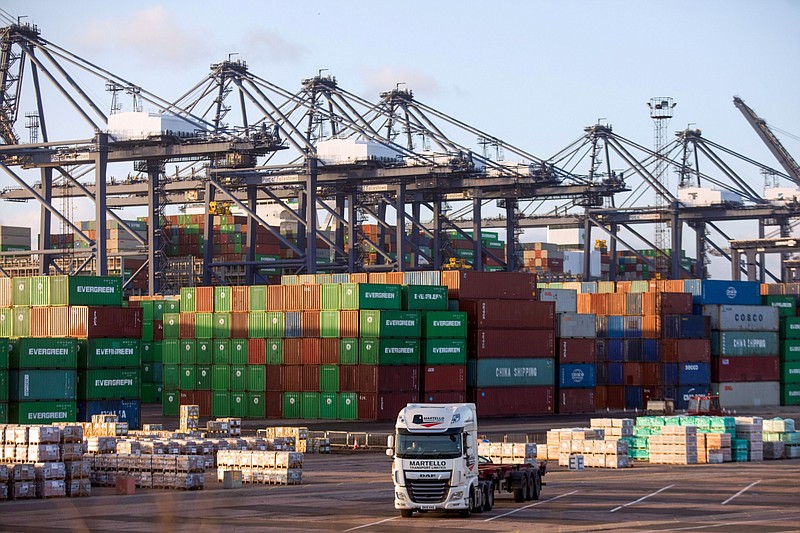A scarcity of warehouse space because of Christmas demand and the pandemic is putting Britain at risk of shortages of some food products as it prepares to leave the European Union's single market.
With five weeks to go before the end of the Brexit transition period, large manufacturers and industry groups are warning that the capacity of the food supply chain is at its peak and can't withstand any further shocks.
Unilever, the maker of Ben & Jerry's ice cream and Hellmann's Mayonnaise, said it is building up stock of key lines, but "warehouses are absolutely full." Like rival Nestle, the maker of Kit Kats and Nescafe coffee, maintaining supply of finished products and ingredients is now the priority as talks between Britain and the E.U. on a trade deal remain deadlocked. Yet that's "with stock building more difficult at this busy time of year," Nestle said.
"The flexibility we had in March to respond to Covid-19 demands to move stock around doesn't exist at this time of year," Unilever said by email. "We need governments on both sides to do whatever is needed to keep the ports and roads open for smooth and consistent supply routes."
[CORONAVIRUS: Click here for our complete coverage » arkansasonline.com/coronavirus]
There have been numerous warnings about potential Brexit disruption from companies and even U.K. ministers, such as lines of trucks on the highway regardless of whether there's a trade deal or not. The trouble is that the latest contingency planning couldn't come at a worse time as Christmas goods take up storage space.
People in the food industry say it's likely there could be some shortages of key brands and ingredients made in the E.U., which supplies Britain with everything from tinned tomatoes and olives to wine and baby food in foil pouches. Even with an accord, some food prices are likely to rise.
More companies are trying to recruit extra logistics workers to ensure ports can cope with increased demand for unloading and storing supplies. Others, including Unilever, have been beefing up U.K.-based manufacturing.
The Food and Drink Federation is concerned about the ability of businesses to stockpile at a time when "we don't have an abundant amount of food-safe warehouses," said Dominic Goudie, head of international trade at the organization. Britain "won't run out of food," but there could be sporadic shortages of certain products and brands, he said.
More than four years after the U.K. voted to leave the borderless market it joined in 1973, the country has yet to agree to the terms of its future relationship with its biggest trading partner. The delays have left companies struggling to address the uncertainty.
For example, it's hard to know how to stock supplies of the right packaging when labeling requirements post-Brexit are still not clear, Goudie said. That will particularly hit goods supplied to Northern Ireland, which will still be bound by the single-market rules when the transition period ends, he said.
"Stockpiling of food packaging is a critical component of any supply chain," Goudie said. "But we still have technical questions that need to be answered about what exactly you must put on the packaging."
Business groups say failing to reach a new deal would be disastrous for the economy.
Goudie pointed to the current congestion of containers at the English port of Felixstowe as a worrying snapshot of what could lie ahead for food deliveries post-Brexit. Some of his federation's members have had goods rerouted to other ports in the U.K. and on the continent.

